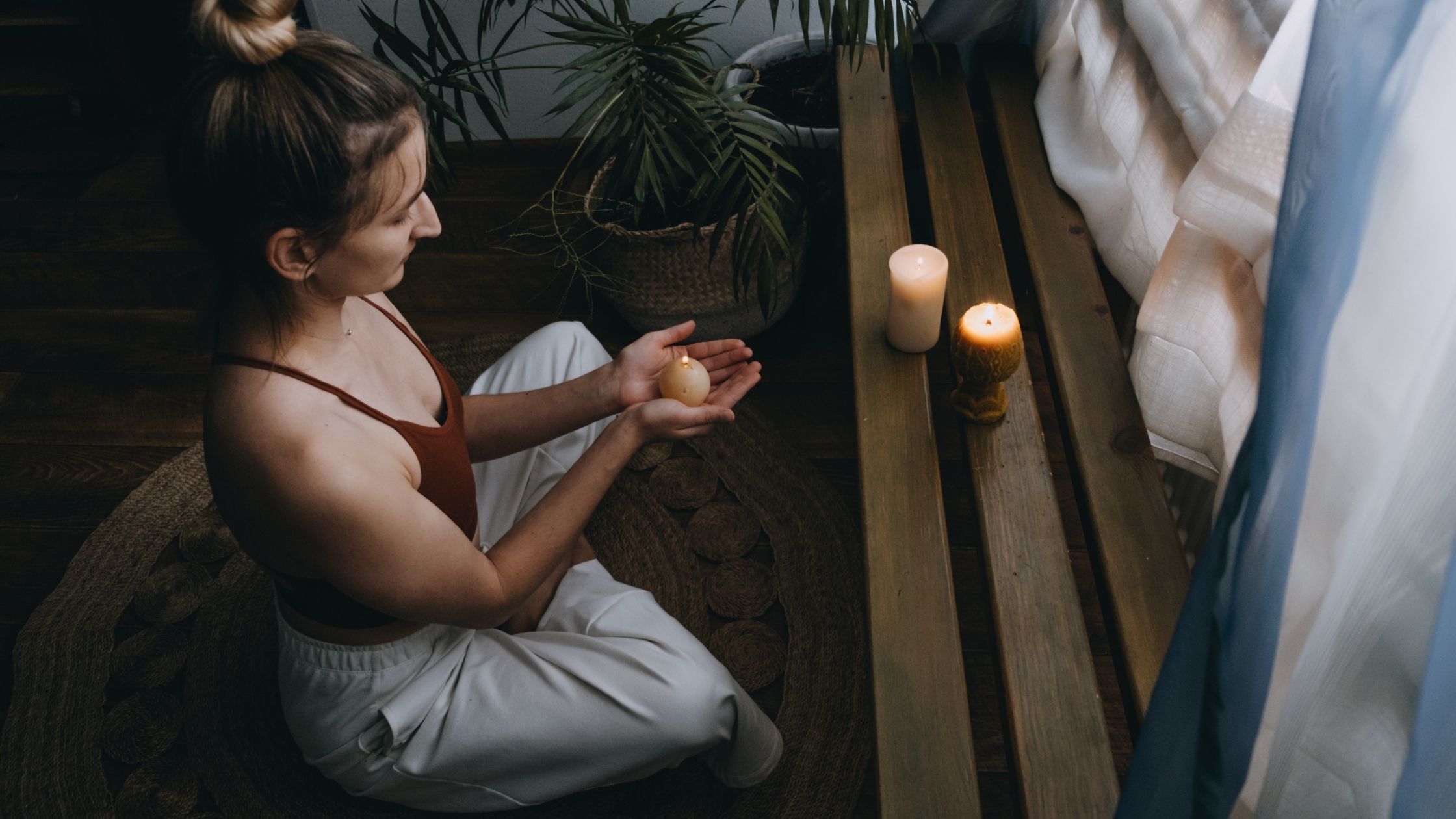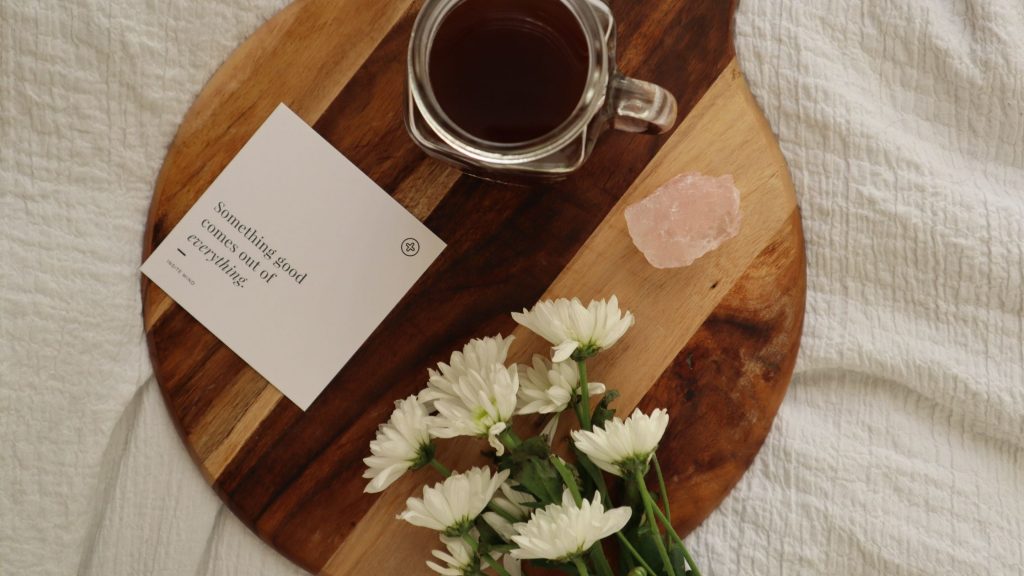

Disclosure: Some of the links in this article are affiliate links, which means that if you purchase through those links I will receive a small commission. For example, as Amazon Associate, I earn from qualifying purchases. If you decide to use these links, thank you!
Our bedtime routines can make or break good health. When we get good rest, we nourish our minds, bodies, and spirit. Setting a solid sleep care practice will leave you feeling well-rested and rejuvenated.
You can elevate your bedtime through many practices. Ready to create your sleep care routine? These tips will help you get the best sleep possible every night.

Before we can discuss proper sleep routines and how to make the most of bedtime, let us first understand what happens during this precious time of day.
We experience multiple levels of sleep throughout the night. It is associated with our brain waves and the speed at which our brain is functioning.
The sleep cycle includes 4 steps:
You will cycle through these stages multiple times throughout the night. Ideally, you will cycle 4 or 5 times. When you do not have a whole night’s rest, you are at higher risk for health problems.
When you sleep, your body is experiencing vital repairs. Without healthy sleep, you are at higher risk for depression, seizures, migraines, and high blood pressure.
Your metabolism is also affected. It is possible to put the body into a pre-diabetic state when you experience poor sleep.
Additionally, sleep impacts brain plasticity. Meaning, when you sleep, your brain is processing what you learned throughout the day. If your brain does not receive the proper channels, you will have a more difficult time remembering the information you received the day before.
Studies have shown that the brain can remove waste from itself while you sleep as well. Waste removal is vital to good brain health.

There are many excellent resources and practices out there to enhance your ability to get great sleep. Everyone is different, so creating a system that works for you is crucial. When you do the research and try out a few things, you increase your ability to get a solid night’s rest.
While yes, you can use a sleep aid like Ambien, you will probably be better off going the natural route. There are a myriad of herbs from the plant world that can calm your nerves and soothe you before bedtime. Some of our favorite calming herbs include:
These are lovely medicinal plants that will nurture you into bedtime. You can take these herbs in many forms. Try a soothing cup of tea or a tincture. You can also ingest herbal supplements to receive the magic of these plants.
One way our sleep habits are regulated is through our circadian rhythm, also known as the biological clock. Have you ever noticed that you start to feel sleepy when your power goes out? That is because of your circadian rhythm.
When we live our lives so closely attached to the “blue light,” we disrupt melatonin production in the body. One way to combat this is to turn off your phone and turn down the lights at least one hour before sleep. You can also take a melatonin supplement for an extra oomph.
Many of us experience racing thoughts before bed. “Oh no! I forgot to respond to that email!” “Did I leave the oven on?” “I cannot believe I said that!” Sound familiar?
One great way to alleviate symptoms of anxiety before bed is to meditate. It can be as simple as attempting pranayama. Pranayama is the practice of breath. One such practice is alternate nostril breathing. Alternate nostril breathing is scientifically proven to decrease blood pressure and the heart rate to make you more relaxed. This effect is due to the effects this practice has on the vagus nerve. The method is quite simple:
Yoga Nidra is a guided practice designed to induce deep relaxation. A practitioner will guide you as you lay in savasana, moving closer to sleep. You can even do this while you are already in bed. You can find great yoga Nidra videos on Youtube. The Insight Timer app also has excellent guided yoga Nidra recordings.
While you may find the suggestions above to be helpful, there are a few more things you can do for better sleep health.
Soundscapes are a great way to ease the mind. The sound of the ocean or falling rain are sure to bring good thoughts and a more relaxed mind
Also binaural beats are effective. Remember all that talk about brain waves above? Binaural beats will help your brain waves move into non-REM sleep as you listen. Using headphones for this is crucial. We suggest trying out theta waves to help you get there. You can find binaural beat recordings on Youtube as well.
Having a solid sleep routine will create better health. Make your sleep routine an oasis. Wear comfortable clothing. Turn off your devices. Make a cup of tea and meditate your way to better brain function and an improved mood during the day.
These are only but a small helping of the resources out there to help you drift into a peaceful, restful sleep.
If you are having trouble with your nighttime routine, don’t give up. You are capable and worthy of a healthy life. Keep trying until you find what works best for you. Your body will thank you.
https://courses.lumenlearning.com/atd-bhcc-intropsych/chapter/stages-of-sleep/

Allison Coulter is a writer, herbalist, musician, farmer, and lover of nature. She is an avid traveler and backpacker, having traveled throughout most of the United States as well as parts of Asia and Europe. She has lived in Hawaii, Philadelphia, New Jersey, Boston, and California.
Allison is always growing her knowledge on wellness, herbalism, meditation, and yoga. She believes life is to be full of courageous adventure while maintaining mental, spiritual, and physical health. Environmentalism is at the heart of her values.
You can find Allison on Instagram @greenwitchrevolution


